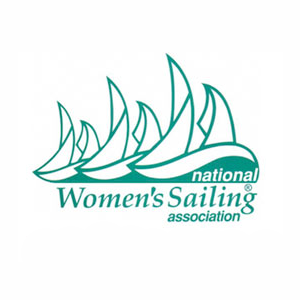
Windy City hosts Women’s Sailing Conference
Sharing Sailing was not only the theme for the 21st annual National Women’s Sailing Association (NWSA) Conference on September 11th, it was the purpose of the event. Held at the “Friendliest Yacht Club in America”, Jackson Park Yacht Club in Chicago, it was a picture perfect day for learning sailing skills and gaining practical nautical knowledge. “The hospitality shown to NWSA by the Jackson Park Yacht Club is sincerely appreciated. It was also definitely great to resume the in-person format. Thank you participants and instructors for joining us, despite the uncertainty of these times. In the end, women teaching women works!” noted Elise Read, NWSA president.
Workshops, ranged from beginner to advanced, were shared by all women instructors. Half-day, on-the-water courses included; Welcome Aboard, Jib and Spinnaker Trim and Docking. Land-based workshops included; training on basic diesel maintenance, prevention of sailing mishaps, marlinspike and navigation. Panel discussions — which were also presented on-line and recorded — included strategies for women entering and growing in sailing, sailing green and clean and how to choose the right boat.
Conference co-chair, Captain Chiaka Patterson reported, “I was especially inspired watching the conference attendees share their experiences after workshops. The women were so enthusiastic about engaging in their selected workshops to learn something new or refresh on a topic. They enjoyed learning while making new friends throughout the day.”
“As usual, attendees at this year’s symposium were thrilled with the chance to connect with other women sailors while learning from stellar instructors in a new location,” added Conference co-chair, Karen Harris.
A top-notch group of instructors included AYBC certified diesel presenter, many Coast Guard captains and six BoatUS/National Women’s Sailing Association Leadership in Women’s Sailing Award (LWSA) honorees.
Doris Colgate, the National Women’s Sailing Association founder and the recipient of the 2003 award, joined the opening Sharing Sailing session along with Margaret Pommert (2020) and the 2021 honoree Marie Rogers. Previous recipient Pat Dieselman (2019) led workshops. 2001 NWSA recipient, Nancy Erley also participated in the conference offering a video premier of her an ever-popular How to Throw a Line workshop. The virtual conference content will be available for future use by both NWSA and JPYC.

2001 honoree Betsy Alison worked pre-conference to qualify ten women US Sailing basic keelboat instructors. The new sailing instructors, including women of color, were identified by NWSA as excellent instructor candidates then recruited by NWSA to work towards US Sailing’s and NWSA’s shared goal of increasing the diversity of sailing instructors.
“Participants were not the only learners at the conference,” said Debbie Huntsman, immediate past president of NWSA. “For NWSA, we left a very comfortable setting, which we had enjoyed for two decades. In doing so we learned a great deal from our new friends at Jackson Park Yacht Club (JPYC). We saw first hand, a Black woman sailor and a white woman sailor may have differences in life experiences and challenges in getting on a boat, yet we are united as females in the sailing lifestyle. We discovered JPYC has a long history of diversitying the sport and lifestyle of sailing, just like NWSA. Both organizations recognize that a sailor is a sailor, and bias beyond that needs to be eliminated. The wind and the sea don’t consider skin color, economic status or gender. The tides, breeze and waves give us all equal treatment.”
“Participants were not the only learners at the conference,” said Debbie Huntsman, immediate past president of NWSA. “For NWSA, we left a very comfortable setting, which we had enjoyed for two decades. In doing so we learned a great deal about how deep the privilege we enjoyed actually was. We also learned from our new friends at JPYC, a Black sailor and a white sailor may have differences in life experiences and challenges in getting on a boat, but we are united as females in the sport. We recognize that a sailor is a sailor, but bias needs constant work to be eliminated. The wind and the sea don’t consider skin color, economic status or gender. The tides, breeze and waves give us all equal treatment. We should learn from that.”
